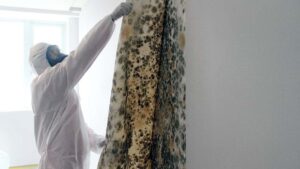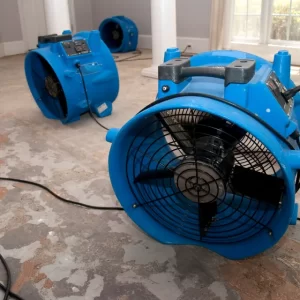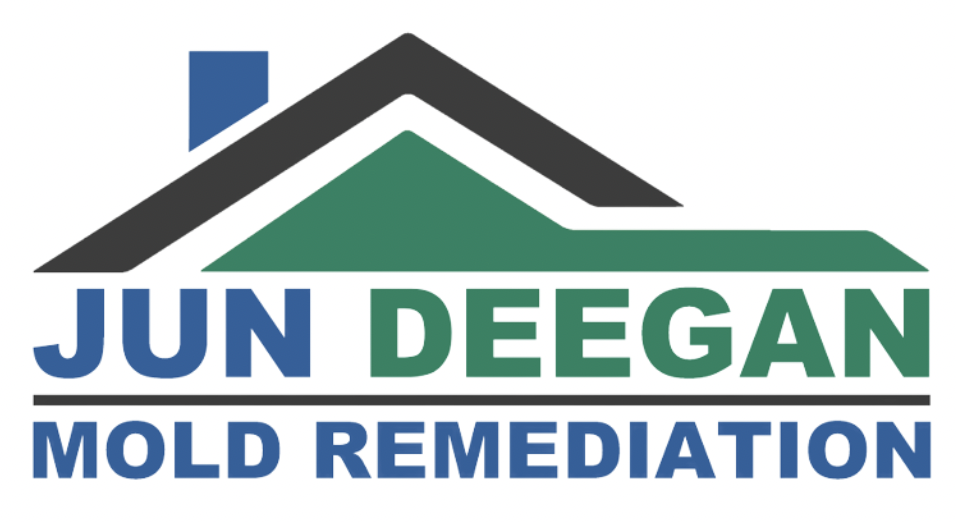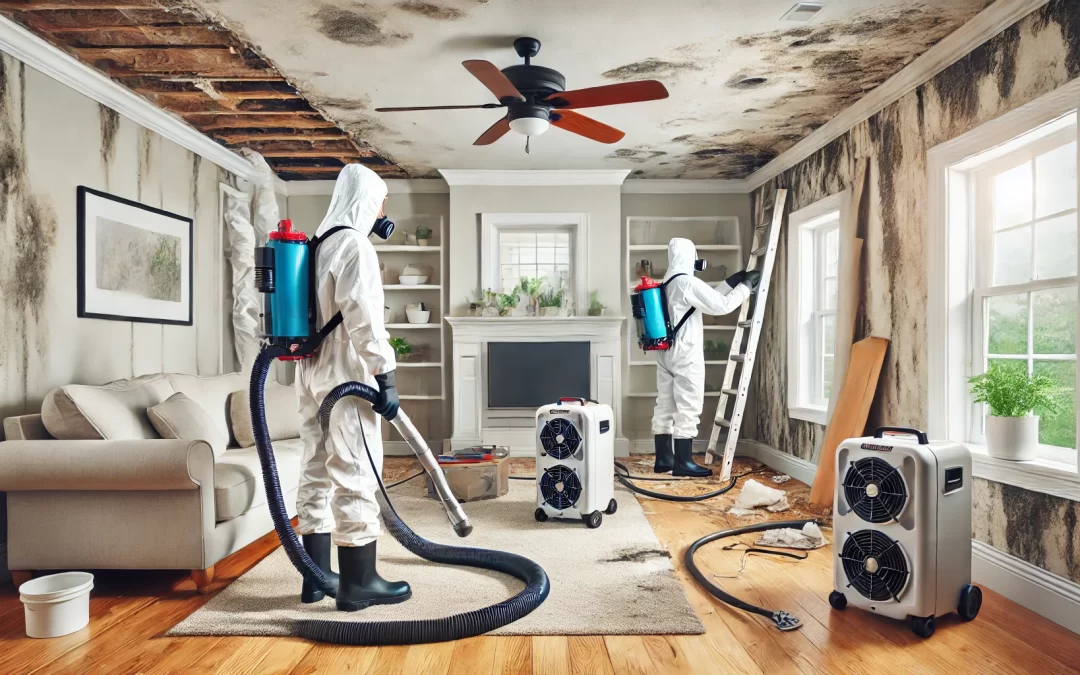Mold is a common issue in homes and businesses, especially in areas like New Jersey, where humidity levels provide a perfect environment for mold growth. If you’ve discovered mold in your property, you may be asking, How long does mold remediation take? Understanding the process and timeframe can help you manage your expectations and prepare for what lies ahead.
In this blog post, we will break down the mold remediation process, give you an idea of how long it may take in New Jersey, and explain what to expect during each stage of the process.
What is Mold Remediation?
Mold remediation refers to the process of identifying, removing, and preventing mold from returning to your property. This service is particularly important if you’ve experienced water damage or are dealing with persistent moisture problems. The primary goal of mold remediation is not only to remove mold spores but also to sanitize the affected area and resolve any underlying causes, such as leaks or high humidity.
Remediation is a multi-step process that ensures mold is completely removed and does not return. The duration of each step varies depending on the extent of the mold problem, so understanding the factors involved can help you anticipate the time required.
Factors That Influence Mold Remediation Time
Several factors influence how long mold remediation takes. By understanding these factors, you can better estimate the timeline and prepare accordingly.
1. Size of the Affected Area 
Naturally, the larger the mold infestation, the longer it will take to remediate. For smaller mold problems confined to one area, process can often be completed in just a few hours. However, larger infestations that affect multiple rooms or floors may require several days of work.
2. Location of the Mold
Mold in easily accessible areas, such as bathrooms or kitchens, can often be removed more quickly. On the other hand, mold hidden in walls, ceilings, or under flooring requires additional time to locate and treat. Consequently, remediation specialists will need to carefully dismantle surfaces to access and treat the mold.
3. Type of Mold
The type of mold can also affect the remediation timeline. Toxic molds, such as black mold (Stachybotrys chartarum), require more thorough removal processes, thus taking longer. Mold specialists will need to follow more stringent procedures to safely remove toxic mold, which can extend the project.
4. Moisture Source
Mold growth is typically linked to hidden leaks or high humidity. Before the remediation team can begin, they must first address the moisture problem. If the moisture source is unresolved, the mold will likely return. Fixing this problem will take extra time but is essential to ensure that mold does not reappear.
5. Extent of Damage
If mold has caused significant damage to materials like drywall, flooring, or insulation, remediation will take longer. Professionals may need to replace damaged materials, which further extends the process.
What to Expect During Mold Remediation in New Jersey
Mold remediation is a detailed, step-by-step process. Below is what you can expect during each phase:
1. Inspection and Assessment (1-2 hours)
The first step in mold remediation is a thorough inspection of your property. Mold specialists will assess the extent of the damage, locate hidden mold, and determine the moisture source. This process generally takes 1-2 hours, depending on the size of your home. Following the inspection, you will receive a detailed plan for addressing the mold problem.
2. Containment (2-4 hours)
Next, the remediation team will isolate the affected area to prevent the spread of mold spores. They will seal off doorways, vents, and windows using plastic sheeting and create negative air pressure. This containment process typically takes 2-4 hours, depending on the area size and complexity.
3. Mold Removal (4-8 hours per day)
During this stage, professionals will remove the mold from surfaces like walls, floors, and ceilings. The length of time for this process varies depending on the severity of the mold issue. This stage can last from several hours to several days, with larger infestations taking more time. Additionally, the team will clean and disinfect the area to ensure no mold spores remain. In some cases, they may need to replace materials such as drywall or insulation.
4. Drying and Dehumidification (1-2 days) 
After removing the mold, it’s essential to dry the area to ensure that no moisture remains. The team will use dehumidifiers and air movers to reduce humidity and dry out the space. This process typically takes 1-2 days, depending on the moisture levels and the size of the affected area.
5. Final Cleaning and Restoration (1-2 days)
The final step involves cleaning the area to remove any remaining mold spores. If the mold has caused significant damage to structures, the remediation team may need to replace materials like drywall or insulation. This final phase typically takes 1-2 days to complete.
General Timeframe for Mold Remediation
On average, mold remediation in New Jersey can take anywhere from 2 to 7 days. For smaller infestations, the process can often be completed in 2-3 days. Larger and more severe mold problems, however, may take up to a week or more. The duration depends on the severity of the mold infestation, the location, and whether any repairs are needed.
Additional Considerations
Though the remediation process may seem lengthy, it is critical to allow the professionals the time they need to do the job correctly. Rushing through the process can lead to incomplete removal, which could cause mold to return. Remember, professionals take extra care to ensure that your home is safe and free of mold.
If you detect mold growth early, remediation can be faster and less costly. That’s why acting quickly when you notice signs of mold—such as a musty smell or visible spots—will help minimize the overall impact on your home.
How to Speed Up Mold Remediation
While it’s essential to follow all the necessary steps, you can take actions to speed up the process:
-
Fix the Moisture Problem: Before the remediation team arrives, ensure you’ve fixed any leaks or sources of moisture. This step helps avoid delays and ensures mold doesn’t return.
-
Clear the Area: If possible, move furniture and other items from the affected area. This gives the team more space to work efficiently and can reduce the time required.
-
Maintain Proper Ventilation: Proper ventilation helps reduce moisture levels, preventing future mold growth. Use fans and dehumidifiers to maintain a low humidity level during the remediation process.
Call For Timely Mold Remediation
If you suspect that mold is affecting your home, don’t wait to address the problem. Mold spreads quickly, leading to both health risks and extensive damage. Contact a professional mold remediation service today to schedule an inspection and safely remove the mold from your property.
Contact Details
For more information or to schedule an inspection, contact us at:
Phone: 908-322-1533
Email: info@jun-deegan-mold-remediation.com
Website: Jun Deegan Mold Remediation
Address: Scotch Plains, New Jersey, USA


